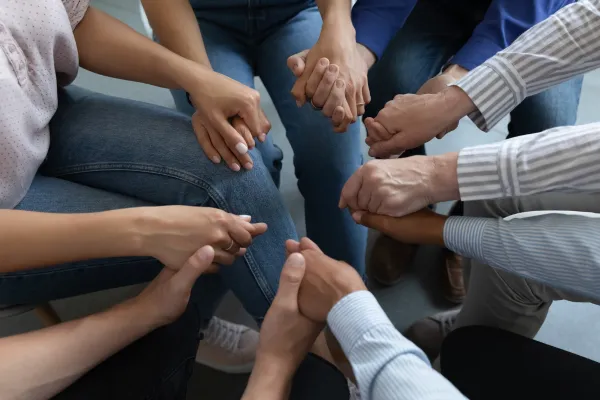

How Addiction Impacts Families and Communities
Addiction, at its core, is a chronic brain disorder distinguished by the constant pursuit of drugs despite harmful consequences. It's not just about substance abuse; it can manifest in various forms, including alcohol, drugs, gambling, or even behaviors like gaming or shopping. Diagnostic and Statistical Manual of Mental Disorders (DSM-5) classifies addiction as a substance use disorder (SUD) and behavioral addiction as a separate category.
At the heart of addiction lies the brain's intricate circuitry. Drugs and addictive behaviors hijack the brain's reward system, flooding it with dopamine, a neurotransmitter associated with pleasure and reinforcement. Constant use will make the brain adapt to these surges, leading to tolerance and the need for higher doses to achieve the same effect. Additionally, repeated exposure rewires the brain, impairing decision-making, impulse control, and judgment, continuing the cycle of addiction.
While anyone can develop an addiction, certain factors increase vulnerability. Genetics play a big role. Environmental factors, such as childhood upbringing, trauma, peer pressure, and socioeconomic status, also contribute. Mental health disorders like depression or anxiety can occur with addiction, worsening its condition.
Impacts on Families
Families often find themselves entangled in the web of addiction, unknowingly taking on roles like the enabler or the codependent. Enablers shield the addicted individual from consequences, unknowingly supporting destructive behaviors. Codependents sacrifice their own needs to cater to the addict, getting a sense of self-worth from their care taking role.
Communication breakdown is also a common sign of families grappling with addiction. Open dialogue is stifled by fear, shame, and mistrust, hindering honest conversations about the problem. Family members may resort to silence or denial, avoiding confrontations that could potentially disrupt the fragile balance.
Financial strain, legal troubles, and emotional turmoil are part of what happens in the household, too, creating an atmosphere of chaos and unpredictability. Families endure emotional and psychological turmoil. Trauma and stress become constant companions, leaving scars that may never fully heal. Children of addicted parents face developmental challenges, grappling with issues like neglect, instability, and the sight of substance abuse looming over their younger years.
Impacts on Communities
Addiction can strain the social fabric of communities, leading to increased crime rates and public safety concerns. When individuals are in the throes of addiction, they may resort to criminal activities to fund their habits, such as theft or drug dealing. This not only jeopardizes the safety of community members but also creates a sense of fear and insecurity.
Not to mention, the stigma and discrimination against individuals with addiction can further aggravate the issue. Too often, those battling addiction are met with judgment rather than empathy and support. This stigma can prevent individuals from seeking help, leading to a worsening of their condition and sustaining the cycle of addiction.
Also, addiction places a significant burden on healthcare and social support systems. Emergency rooms and rehabilitation centers are often overwhelmed with cases related to substance abuse, stretching resources thin. This strain not only impacts those directly affected by addiction but also compromises the quality of care for other community members.
What else? The economic impact of addiction on communities is heavy. Loss of productivity and workforce participation due to addiction-related issues is a major concern. When individuals are unable to fulfill their responsibilities at work or are absent due to their addiction, it not only affects their livelihood but also diminishes overall productivity.
Then there’s the costs of law enforcement and criminal justice interventions associated with addiction that are staggering. Police departments allocate significant resources towards combating drug-related crimes, diverting attention and funds from other pressing community needs. The cycle of arrest, incarceration, and rehabilitation places a heavy financial burden on communities, with taxpayers footing the bill.
Not only that. Addiction can hinder community development and resource allocation. Funds that could be invested in education, infrastructure, or social programs are instead directed towards addressing the consequences of addiction. This slows down the growth and prosperity of the community as a whole, maintaining a cycle of poverty and deprivation.
Coping and Support Strategies
Here are some coping and support strategies:
Family therapy is where families can feel safe to discuss issues. It is also where they can strengthen their bonds and improve their communication. A skilled therapist facilitates discussions, helps identify underlying issues, and guides the family toward constructive solutions.
Support groups can also be a place where the addict can feel comfortable. These gatherings provide a platform for sharing experiences, gaining perspective, and receiving empathy and encouragement from others who truly understand.
Communities are a network of support beyond our immediate circles. Community-based support services play a vital role in providing assistance and resources to those in need.
Rehabilitation centers offer specialized care and guidance for individuals struggling with addiction, mental health issues, or physical disabilities.
Peer support networks connect individuals facing similar challenges, creating a sense of belonging and solidarity.
Coping with addiction is a journey, not a destination. Be patient with yourself and those around you. Together, we can weather any storm and emerge stronger on the other side.
ABOUT US

Jeanne Prinzivalli
Therapist + Coach
I help ambitious, anxious women learn how to trust and put themselves first, so they can stop burning themselves out trying to meet other people's expectations.
SELF CARE CONTINUUM
CLIENT LINKS
LET'S CONNECT
Let’s get you started on relief from self-sabotaging patterns so you can move forward with your life and career passions.
Self Care Continuum Copyright © 2023.




